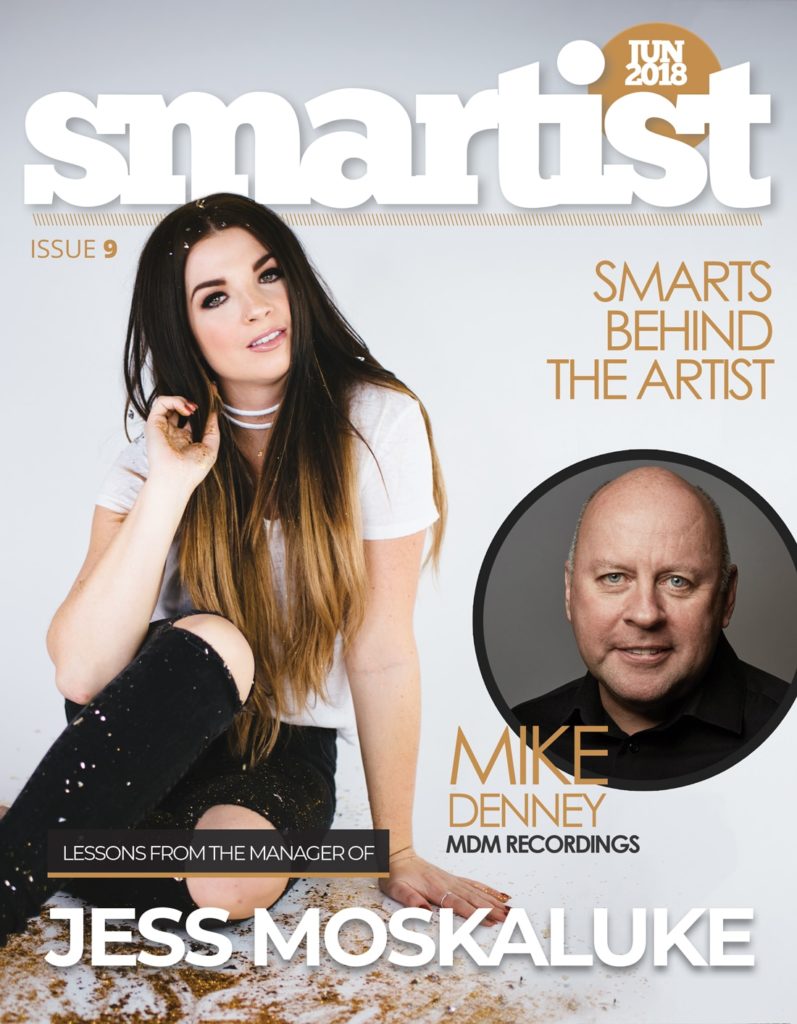How To Be A Good Artist Manager

How To Be A Good Artist Manager
In this video you’re going to learn the top 7 skills & characteristics that all good managers carry, along with the 10 top priorities of the Managers of GRAMMY & JUNO Award Winning Artists when they start working with new talent.
To access the resources and links mentioned in this episode, check the description section below this video directly on YouTube.
1. People Skills
Firstly, to be a good manager or good business person in general you need to develop good people skills. The music business is a relationship business so you need to be able to communicate with people like a normal person in order to build relationships. You have to have your head on your shoulders and be able to network, make friends, and business colleagues. This is absolutely critical to success.
But not only that, it is the maintaining of these relationships that counts. The music business is a very small world and you don’t want to go around burning bridges. It WILL come back to bite you one day. This goes for artists AND managers… or anyone working in any business really! It’s imperative to be an honest (sometimes brutally honest), yet trusted person. Going out of your way to understand people (especially your artist!! If you’re the manager) is absolutely key.
2. Business and Financial Management Skills
Secondly, good managers have business and financial management skills. Running a management company is running a business, and an artist manager must understand that you need to have the same management skills that any other business owner has, which is heavily reliant on financial and operational know-how. A business isn’t a business without revenue, so as a manager it’s your job to get out there and bring in revenue for your artists, and in turn, yourself.
Make sure they’re performing live, touring, selling records, try to get them radio airplay if their songs fit, try to get a publishing deal (for the songwriters), get their songs in TV and film, set up YouTube for ads, and do further research on various revenue streams. Yes of course we have that research ready for you in our Artist Management Toolkit linked below, as well as in our startup kit and free emails linked throughout this article/on YouTube.
With all that being said, I’m a true believer that most if not ALL things in life can be learned. So if you’re feeling weak in the area of business and financial skills, don’t fear it, just get to learning it.
3. Work ethic and drive
Good artist managers MUST have a very strong work ethic and determination because you’ve got a very high level of responsibility. You’re managing someone else’s entire career (your artists), on top of your own, and must take that responsibility seriously. This is a fun business but it is a business, so you need to have the utmost work ethic and drive to keep on going when times get tough.
4. Dedication to your artists
Managers dedicate their lives to their artists. Yes, not just their careers, their lives. Your main reason for working with artists in the first place must be for the love of the artist and their artistry. You have to put your artists ahead of yourself. You have to put their needs ahead of your needs. You must understand that you are dealing with other people’s lives and other people’s money.
5. Creative problem solving and fast decision making
A manager should be able to calmly jump through hoops on a daily basis. There are going to be problems that arise every day. They could be good problems or bad problems, but you’re going to need to figure out how to solve them fast, without dwelling. While also helping your artist not dwell either. The manager is the centre of the wheel, if you’re not solving problems fast, the wheel won’t roll forward. We talk more about solving problems and gaining confidence to make decisions in our course Professional Music Management.
6. Patience
I’ll say it over and over again. Be. Patient. It takes years for artists to perfect their craft. And it’ll take years for you to perfect your business. And it takes years for word to spread and fans to find you. You could be coming into your artist’s life at a time when their craft isn’t quite ready to become a business yet, or they may be in between album cycles and are creating right now. You have to ask yourself if you’re ready to join them in the developing phase, or creation phase of their career.
In both of these phases, you’ll be on the sidelines waiting with no income coming in unless they are constantly performing live. Or, let’s say you start managing them at a time when they ARE ready to release an album, and you’re sure they’ve got a hit song, or a few hit songs on it and that there’s no creative development needed. Even if that album or one of the singles does become a hit, you still won’t see any revenue for at least 10-12 months later because royalties take time to come in. If you don’t have a hit, you might not see much revenue at all (from album sales). Again, this is a long-term business. Don’t expect to pop up overnight (both virally and financially).
7. SMARTS. Aka knowledge. Aka Education.
It doesn’t have to be knowledge you’ve acquired from formal education such as college or an OFFICIAL university, but you need to educate yourself – perhaps through an UNofficially University such that is ours (wink wink). This can be done by watching every single one of our videos, reading every single article we’ve ever posted, reading every single email we send you, reading Jamie’s (my) book, purchasing our Toolkit, taking our courses…. And I’m not even kidding because this is why we exist! For you to get smarter faster.
On the other hand, you can also learn through gaining real life experience, from attending conferences, help from a mentor, and many other ways. Artist Managers oversee all areas of the business so the sooner you get knowledgeable in each area the sooner you can succeed.
8. Good Priorities
I asked the managers of JUNO and GRAMMY Award-nominated and winning artists including Pentatonix, Kongos, Metric, Serena Ryder, Tegan and Sara, Walk Off The Earth, The Trews, k.d. Lang, City and Colour, The Sheepdogs, Alexisonire, and more for their top priorities are when they sign a new act, and these were the top 10:
#1. Is to prioritize creating strong material. You don’t have anything without strong music.
#2. Developing the artist as a strong and unique talent and unique brand
#3. Ensuring the passion, drive, and commitment level is there
#4. Gaining a strong grasp of artists’ self-image and vision
#5. Prioritizing and ensuring a strong commitment to live performance
#6. Positioning (meaning creating the best possible WINNING opportunities for your artists always)
#7. Prioritize your artist and make sure to always keep them happy
#8. Deeply understand artists’ long-term goals
#9. Get the right team in place (prioritize getting an agent, label, publisher, publicist, etc.)
#10. Prioritize direct-to-fan relationships (meaning find direct ways to build relationships with fans, through social media, email newsletters, meet and greets, pledge or pre-sale campaigns, and much more.
If you liked this video/article give us a thumbs up, subscribe, share, comment and let us know what else you’d like to know, share it with your fellow music friends… and thanks for watching/reading!
And remember to download your free startup kit!





Responses